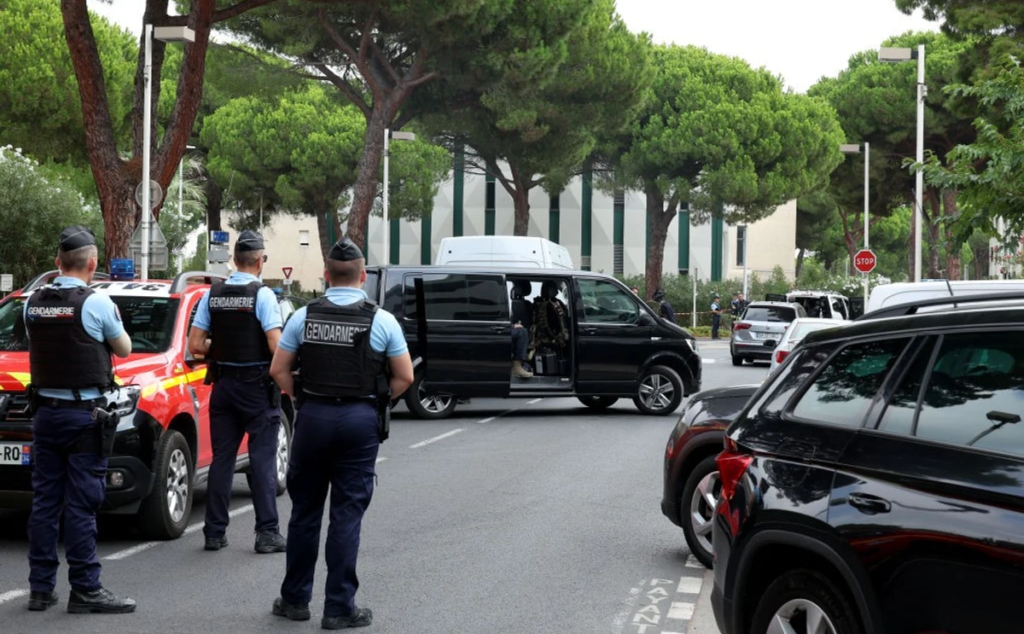French authorities are treating an explosion outside the Beth Yaacov synagogue in La Grande-Motte, near Montpellier, as a potential terror attack. The incident, which occurred early Saturday morning, involved two vehicles set ablaze outside the synagogue, one of which contained a hidden gas canister. The suspect, who was reportedly carrying a Palestinian flag and possibly a handgun, remains at large.
The explosion, which happened between 08:00 and 08:30 local time, injured one police officer. Fortunately, the officer’s injuries are not life-threatening. Five individuals, including the synagogue’s rabbi, were inside the building at the time, but there were no other reported injuries. The attacker also set fire to several entrance doors of the synagogue.
Yonathan Arfi, a leader within the Jewish community, condemned the attack as “an attempt to kill Jews” and suggested it was timed to target Saturday morning worshippers. French President Emmanuel Macron labeled the incident as “a terrorist act.”
Eyewitnesses described the explosion as a dramatic “fireball” that erupted into the air. An anonymous observer told the BBC, “It was surreal, like a film. We didn’t go any further.”
French Prime Minister Gabriel Attal and Interior Minister Gérald Moussa Darmanin visited the scene later in the day. Attal denounced the attack as “an antisemitic act” and expressed his shock and outrage, emphasizing that French Jews were once again targeted because of their beliefs. He noted that a “narrowly avoided” tragedy could have occurred if the synagogue had been filled with worshippers.
Attal and Darmanin both pledged to enhance security around synagogues and other Jewish institutions. Darmanin assured the Jewish community and local residents of his full support, highlighting ongoing security measures. Synagogues and Jewish schools in France already operate under stringent security due to past threats.
This attack underscores growing concerns about antisemitism in Europe. A recent report by the Council of Jewish Institutions in France (CRIF) revealed a nearly threefold increase in antisemitic acts from 2022 to 2023. In May, a man was shot dead by police after setting fire to a synagogue in Rouen. The attack also follows the 2015 kosher supermarket hostage situation and comes amid heightened worries about antisemitism in Europe.
The explosion has drawn widespread condemnation across France’s political spectrum. Left-wing politician Jean-Luc Mélenchon labeled it an “intolerable crime,” while far-right National Rally leader Jordan Bardella described it as a “criminal and antisemitic act.”
The EU’s Fundamental Rights Agency (FRA) survey published last month found that Jewish people across the bloc continue to face significant levels of antisemitism, with 96% of those surveyed reporting encounters with antisemitic incidents in their daily lives.


